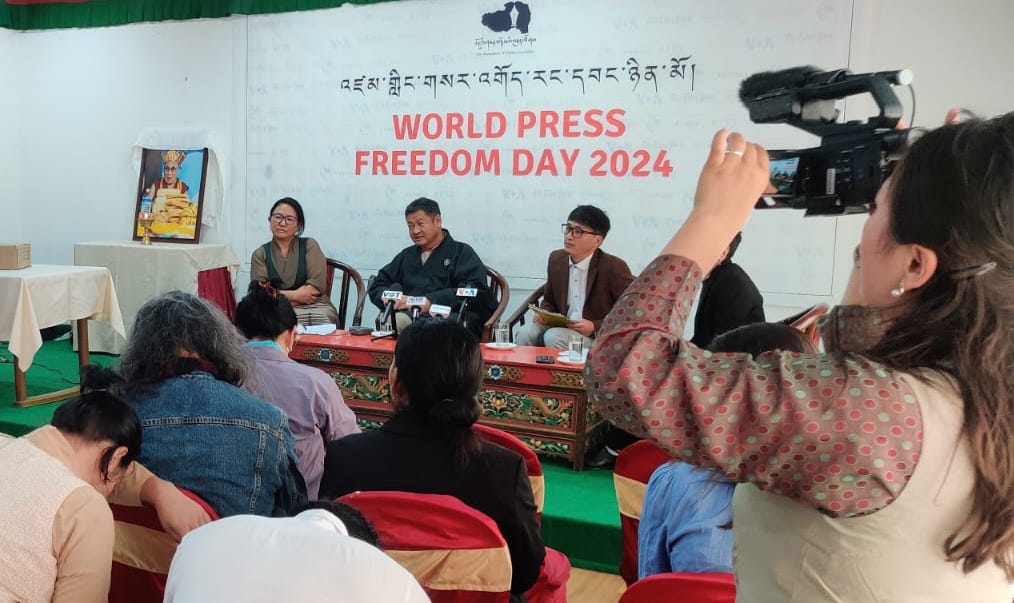By Jamyang Norbu
A few years ago when we first started to organize our boycott campaign, and even last year when we first launched it internationally, we were essentially speaking to a world quite happy to go on buying cheap Chinese products and one that didn’t really care about the consequences.
Now with some millions of American jobs lost to China, and a deficit of about $500 billion (almost one third of it owed to China), the situation has changed dramatically. And it’s not only the USA that’s hurting, Europe and Canada are too. Even poorer countries as Mexico, Bangladesh, the Philippines, Indonesia and Cambodia have been losing jobs to China. The good news in the States in the last few days of an upturn in the American economy has been qualified by the prediction that the job situation will remain grim for the foreseeable future.
Lou Dobbs, economic expert for CNN and U.S News and World Review, is calling for legislation to keep jobs in America, and to penalize companies moving manufacturing bases to China. Alan Tonalson, author of Race to the Bottom says unequivocally that corporate America is largely to blame for this situation by promoting such trade agreements as “Normalized Trade Relations” (formerly known as ‘Most Favored Nation’ status or MFN) with China. (Hey, we told you so!)
And, Chinese workers aren’t really getting such a great deal either. In recognition of the gravity of the labor situation in China, The New York Times, beginning on April 7, 2003, published a series of articles examining the cruel exploitation of China’s industrial workers. This series entitled “The World’s Sweatshop” is online at nytimes.com/world. Also, The Nation just published an article this week about the abysmal conditions of Chinese workers employed in newly-opened Wal-Mart stores in China.
Even Business News came out with a number of articles expressing concern with Chinese exports, a particularly good one being “When Everything Is Made in China,” by Jeffrey E. Garten, dean of the Yale School of Management, which was excoriated in Chinese papers. International Business, published an article on December 2, 2002, entitled “China’s Exports: How Low Can Prices Go?” with this sub-title: “Cheap Prices Have Kept Western Consumers Spending, But Now They Threaten the Global Economy,” by Mark L. Clifford in Hong Kong.
So clearly this is a most favorable moment for all of us to spread the message of the Boycott to the general public. With the holiday season upon us let us all get out there in the shopping malls, department stores, commercial centers and town squares with our leaflets, banners, songs and performances and strike a blow for a Free Tibet, a Free China and a freer and fairer world economic order.
In the next few days, we will be sending you a series of e-mails providing you information, updates and ideas (sent to us by boycotters world over) on how to make our various efforts more effective and appealing.
BOYCOTT ‘MADE IN CHINA’ Campaign.
If you have any comments or questions contact us at usa@boycottmadeinchina.org.









